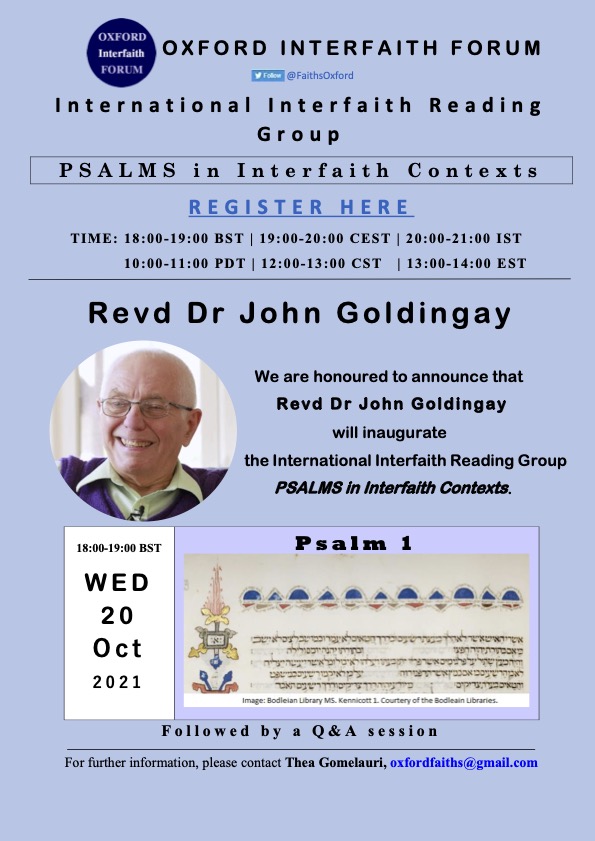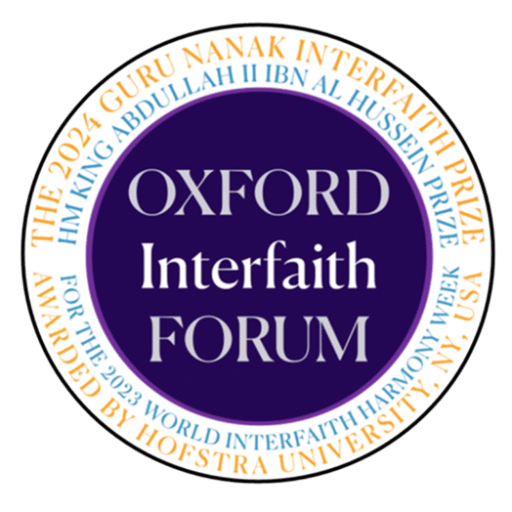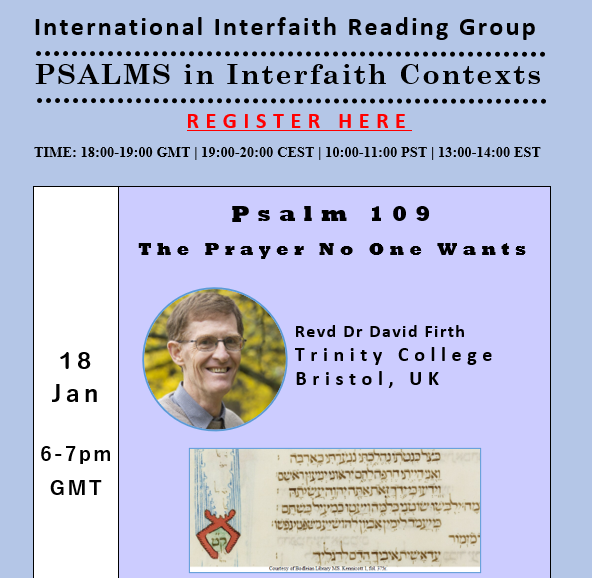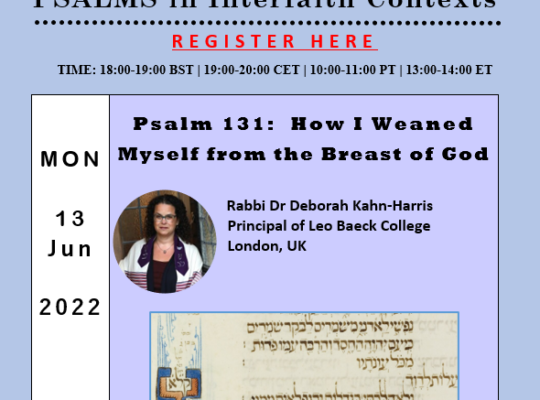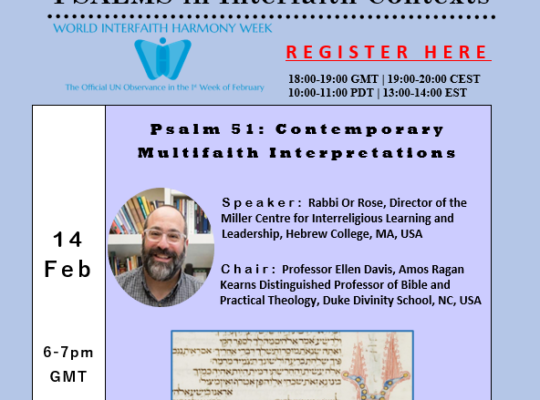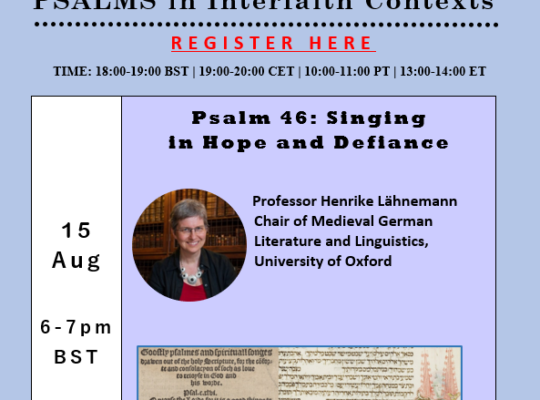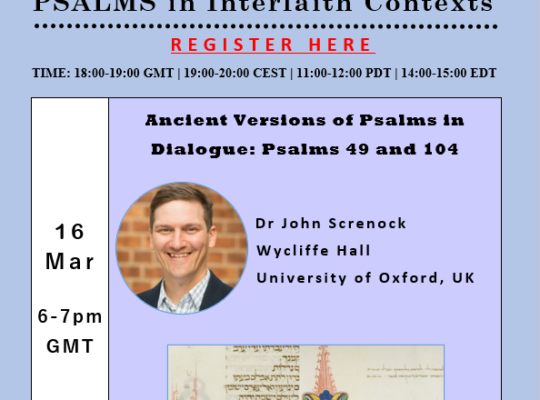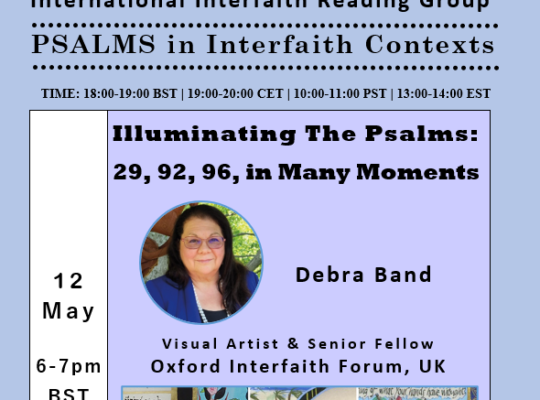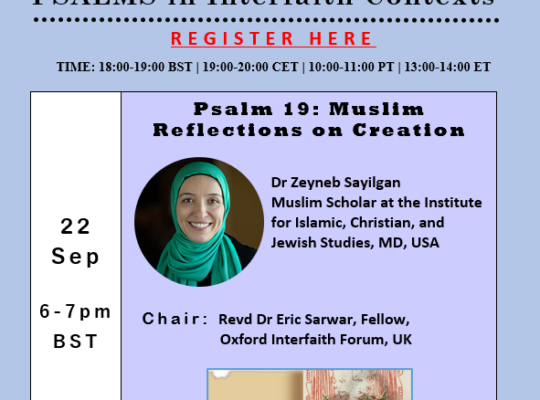18 January, 2024
We are deeply honoured to welcome Revd Dr David Firth, Tutor in Old Testament at the Trinity College, Bristol, UK, to lead a session of the Psalms in Interfaith Contexts Reading Group.
Here are the details of this fascinating session.
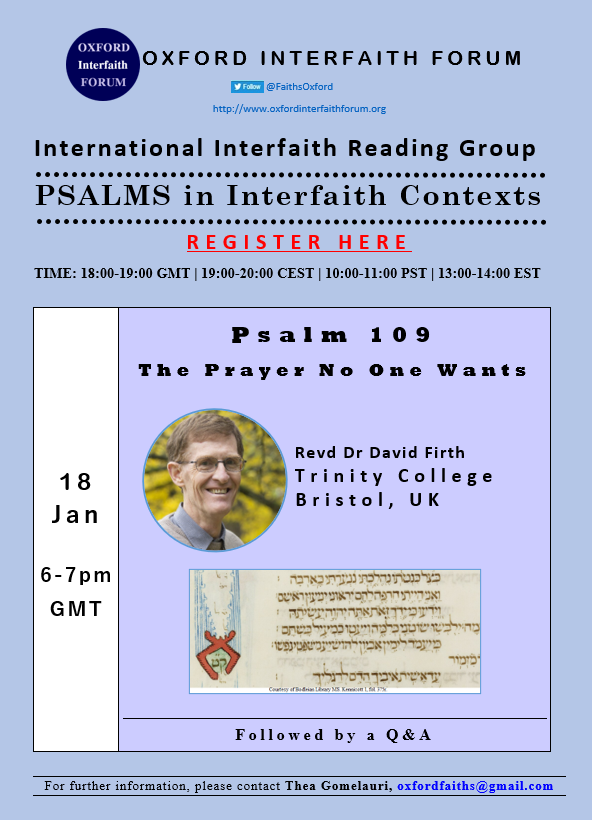
Topic: Psalm 109: The Prayer No One Wants
Abstract: Although many psalms are cherished, the same cannot be said about Psalm 109. Perhaps because it contains the longest and most detailed prayer against an enemy in the Psalter, it is frequently marginalised. Indeed, beyond its application to Judas in the book of Acts, its reception is extremely limited, and Christian lectionaries do their best to discourage its use. However, this paper argues that a combination of form critical and newer canonical and intertextual approaches to the Psalter open up possibilities for its use where it can function as a ‘circuit breaker’ which prevents cycles of violence from building. None of this makes it an easy psalm to pray, and those drawing on it need to understand how it works in the Psalter. But with attention to these elements, it emerges as a prayer which could be significant for addressing patterns that contribute to cycles of violence.
Speaker’s biography: Revd Dr David G. Firth is Old Testament Tutor and Academic Dean at Trinity College, Bristol, UK. He has written commentaries on Joshua (BST), 1 & 2 Samuel (AOTC), and Esther (BST), along with Exploring Old Testament Wisdom, Interpreting Deuteronomy, Interpreting the Psalms, Interpreting Isaiah, Interpreting Old Testament Wisdom Literature, and a book on the role of the Holy Spirit in the Old Testament.
Chair: Revd Dr Eric Sarwar, Fellow of the Oxford Interfaith Forum.
Date: 18 January, 2024
Time: 18:00-19:00 GMT | 19:00-20:00 CEST | 10:00-11:00 PT | 13:00-14:00 ET
Venue: online
If you would like to join the Psalms in Interfaith Contexts Reading Group, please sign up here.
Related Sessions
- Illuminating The Psalms: 29, 92, and 96, in Many Moments
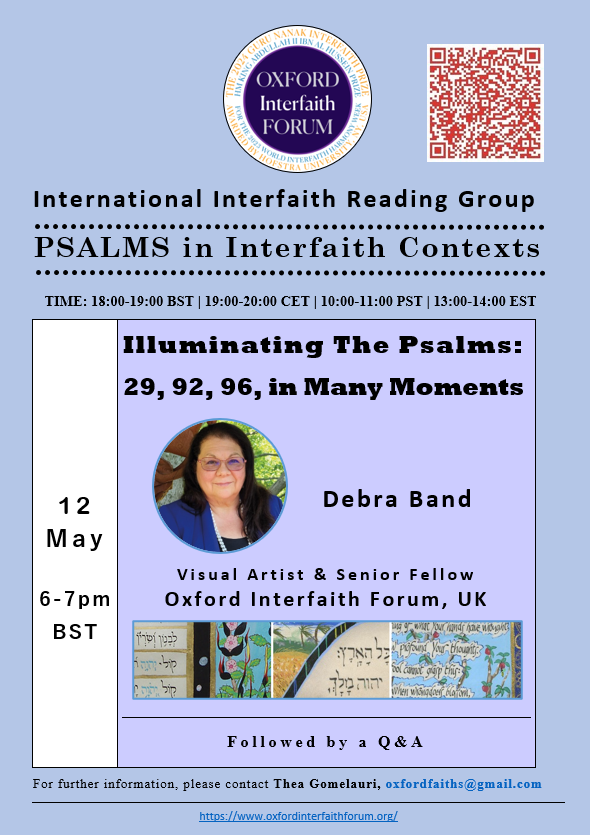
- Psalm 136: Hesed as Praxis
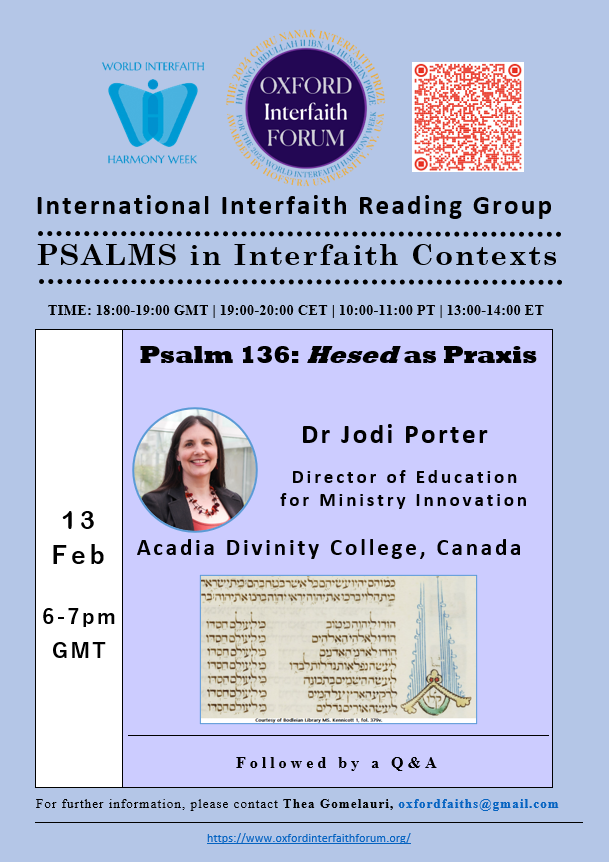
- Was Genesis 1 Dependent on Psalm 104?
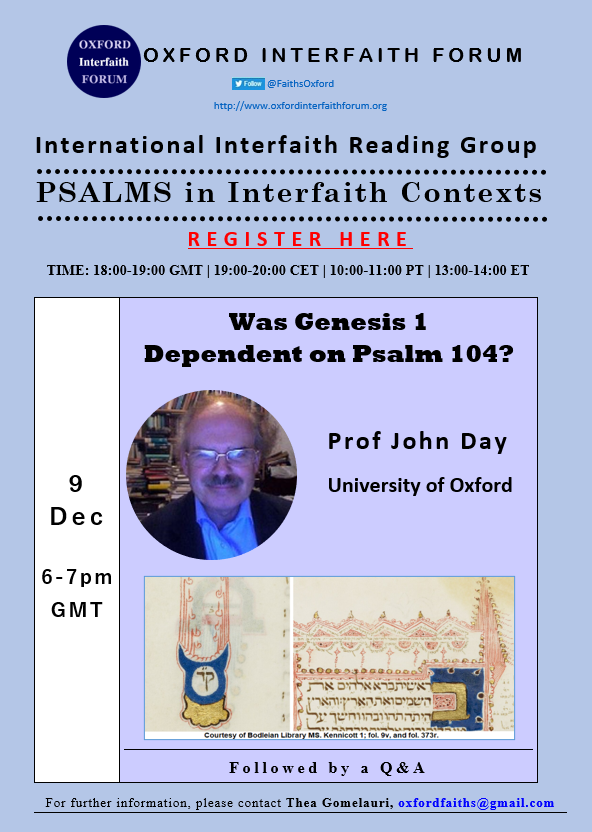
- The Seven Penitential Psalms in the Allegorist’s Hands
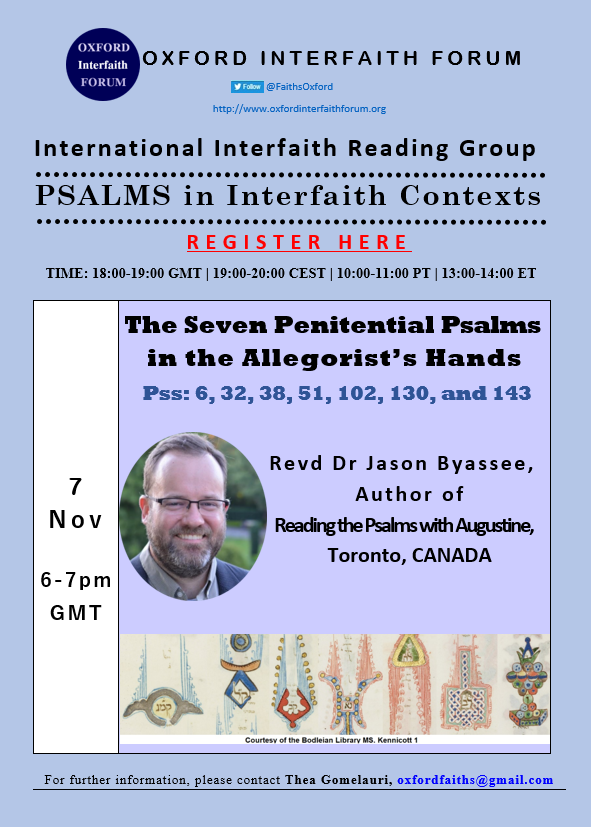
- Beyond Exegesis: The Psalm Cultures of Ancient Jews and Early Christians
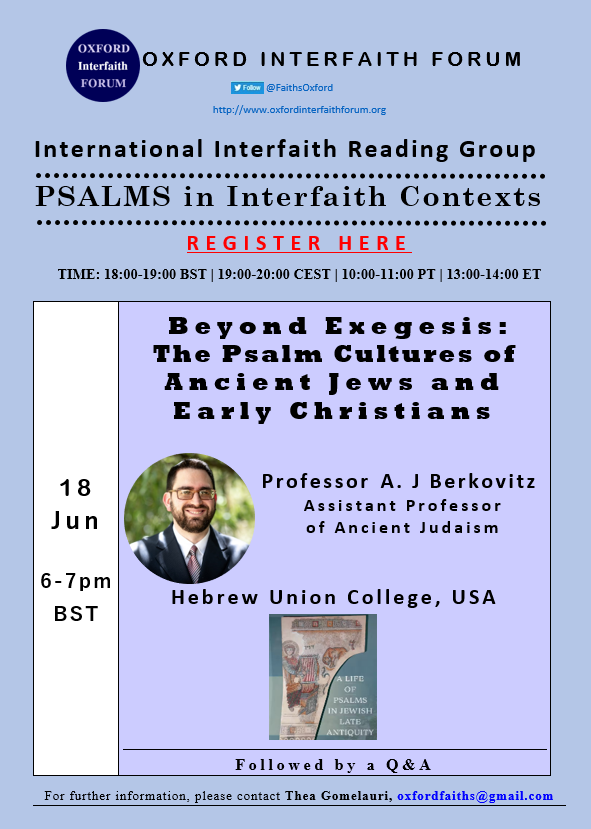
- Psalm 40 and Messiness of Prayer
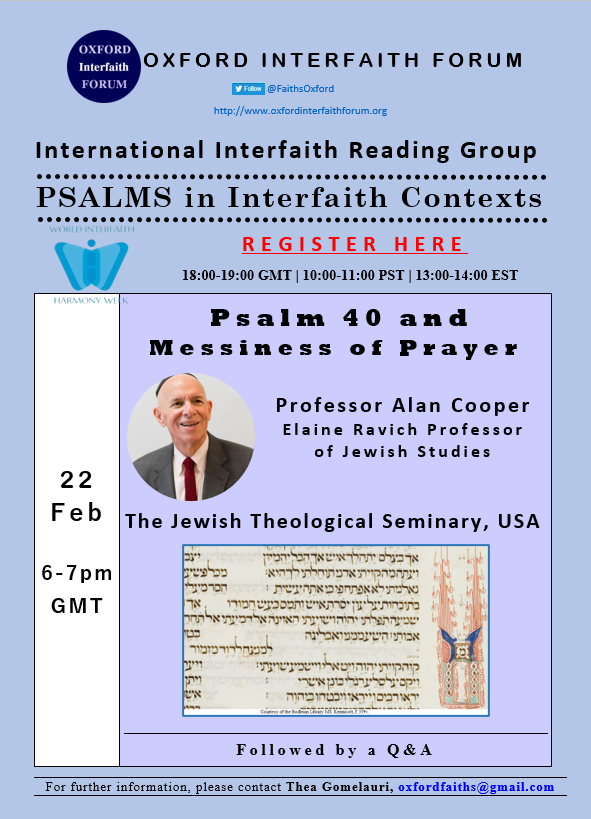
- Psalm 109: The Prayer No One Wants

- Psalmody as an Alternative to Theodicy
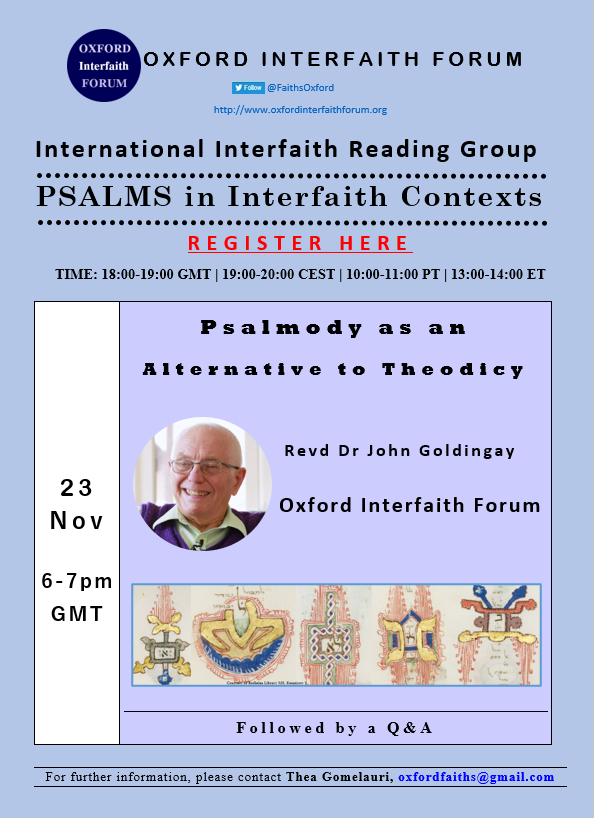
- Psalm 44 and the Book of Job: God on Trial
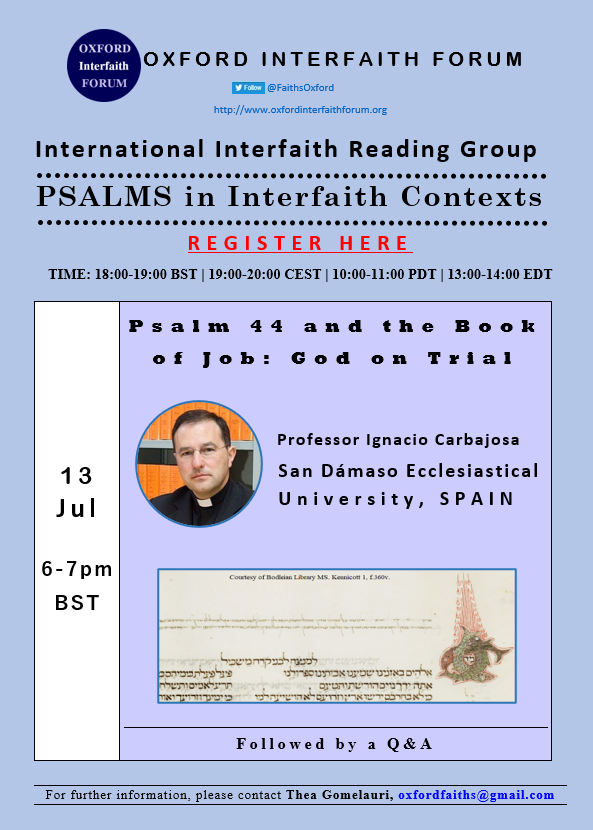
- Exile and Restoration in the Psalms
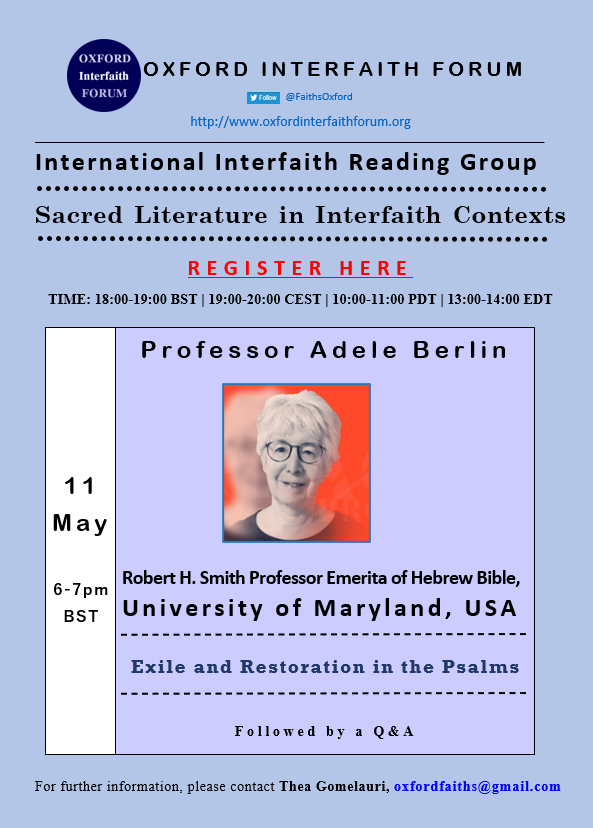
- ‘Deep cries unto deep’: Julian of Norwich and Psalm 42
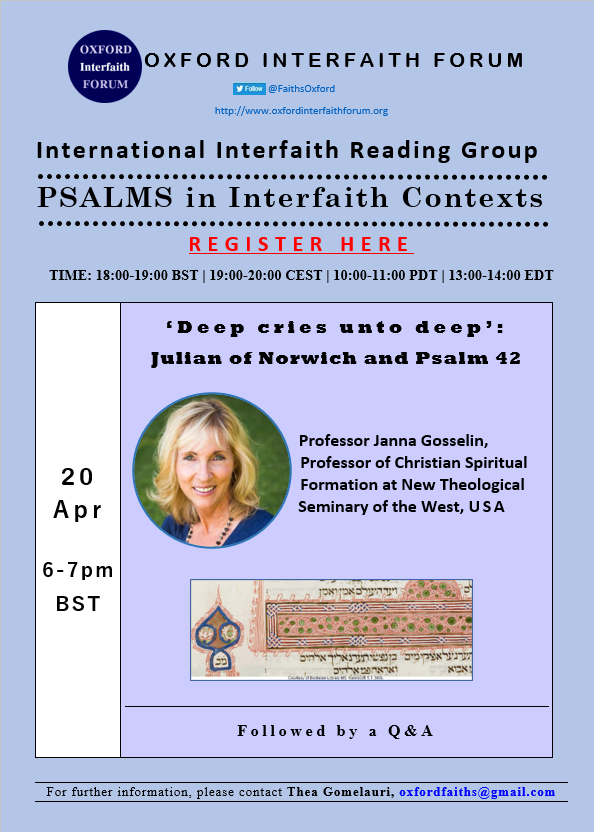
- Ancient Versions of Psalms in Dialogue: Psalms 49 and 104
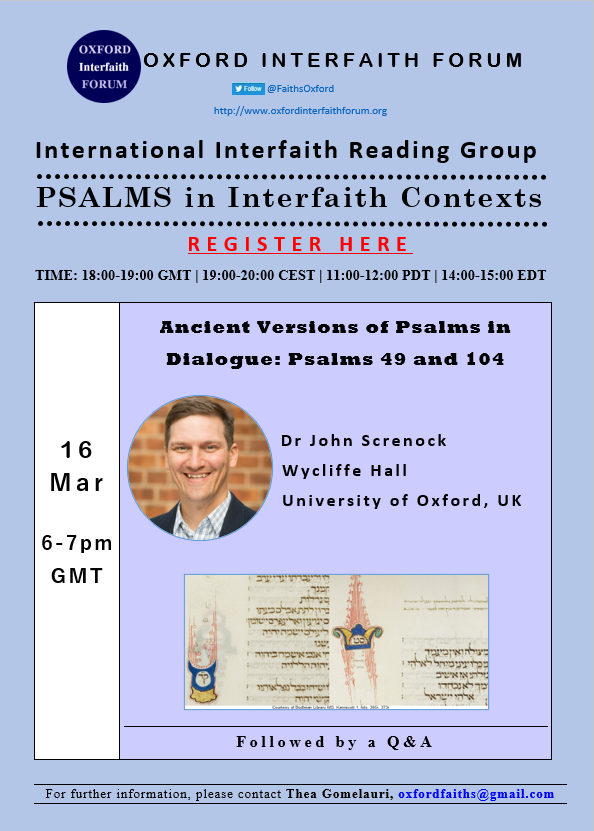
- Awake, My Soul! Psalms: 44; 57; 133; 143
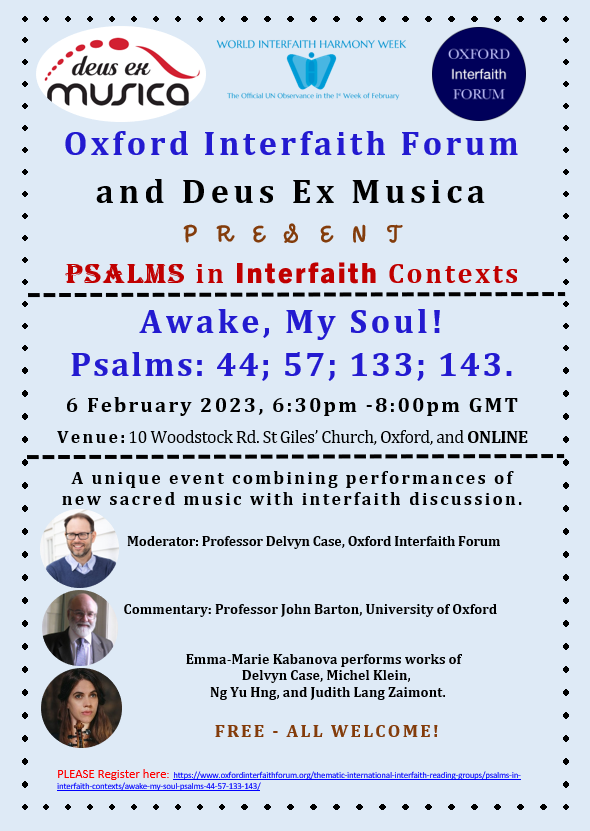
- Psalm 106: Fall of Jerusalem and Lamentations Ch. 3
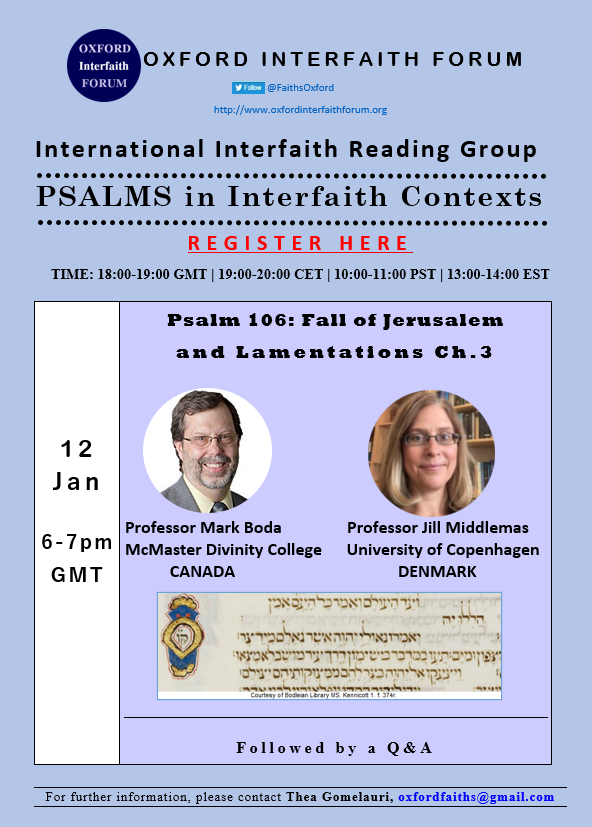
- Psalm 37:25, Innocent Suffering, and Divine Recompense
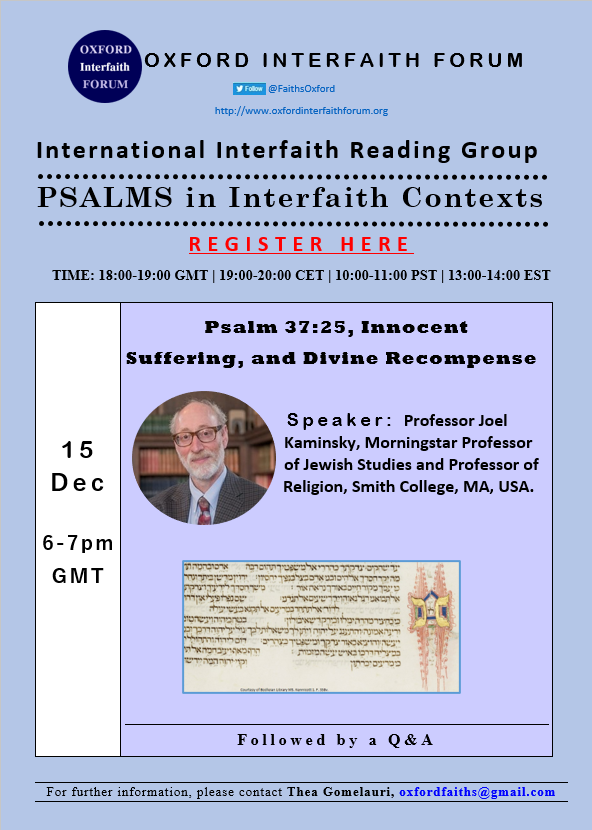
- Spurring Colonialism and Slavery: Protestants and Catholics United in their Use of Psalm 132
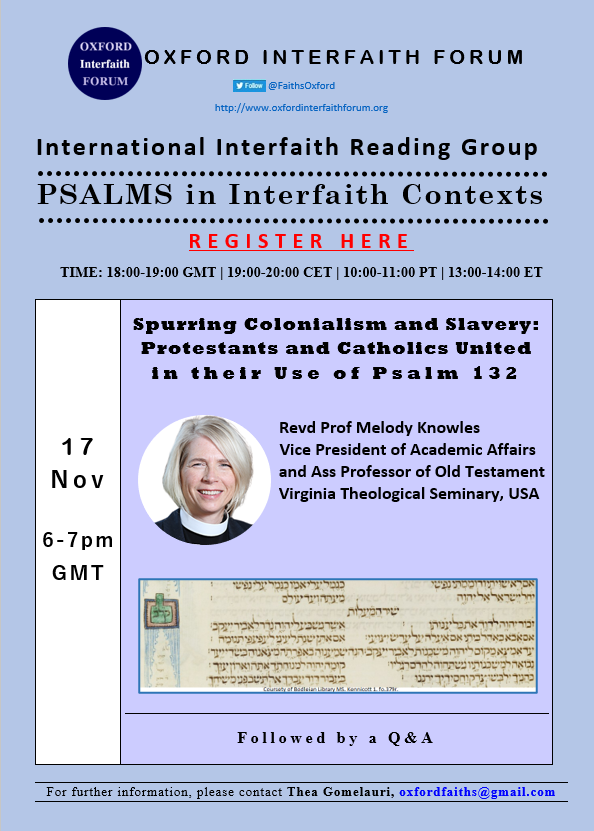
- Midrash Tehillim on Psalm 24
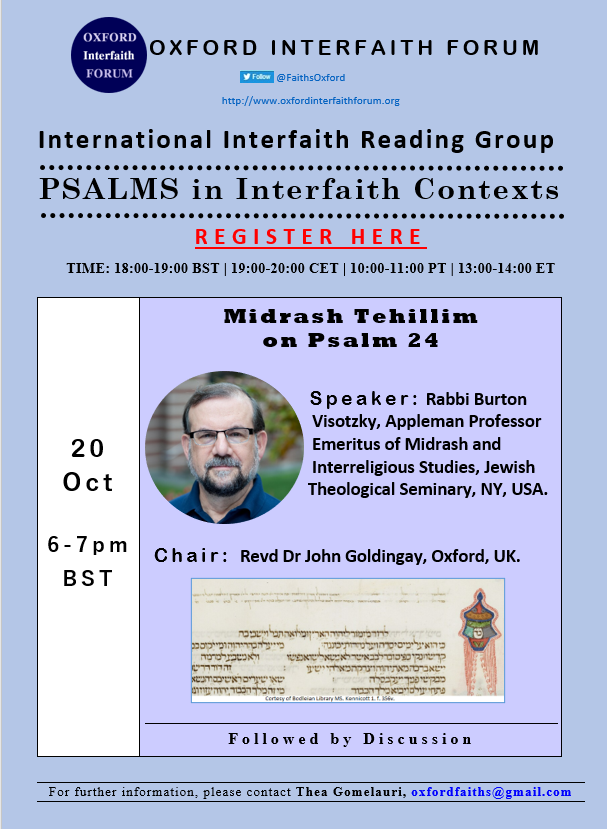
- Psalm 19: Muslim Reflections on Creation
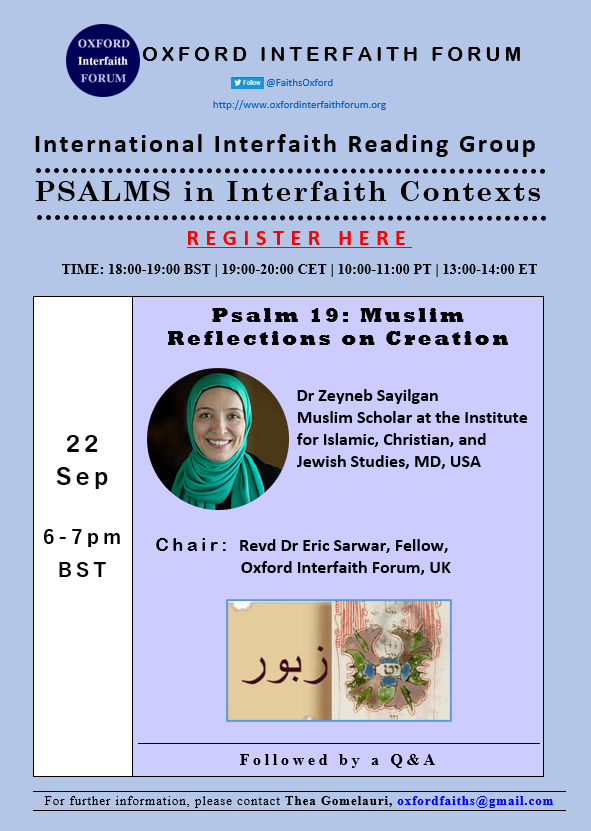
- Psalm 46: Singing in Hope and Defiance
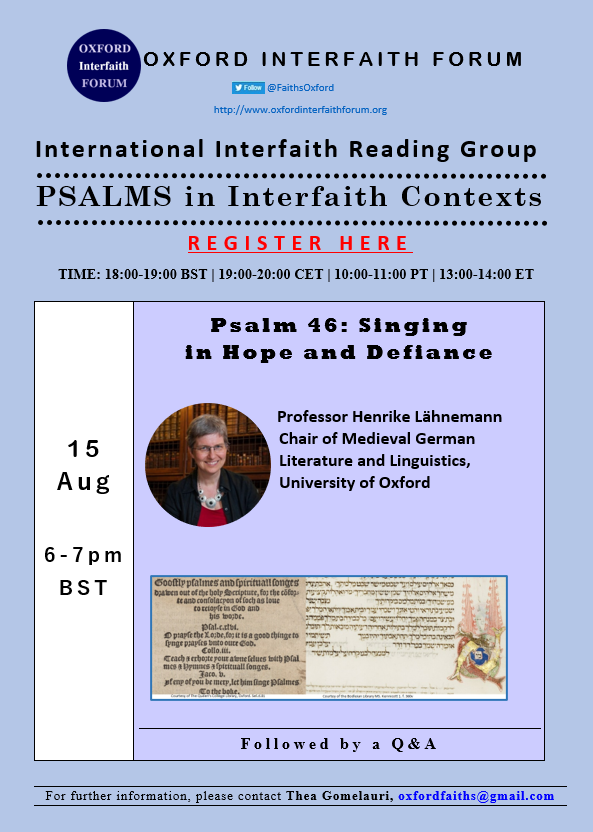
- When Music Meets Psalms: Psalm 130
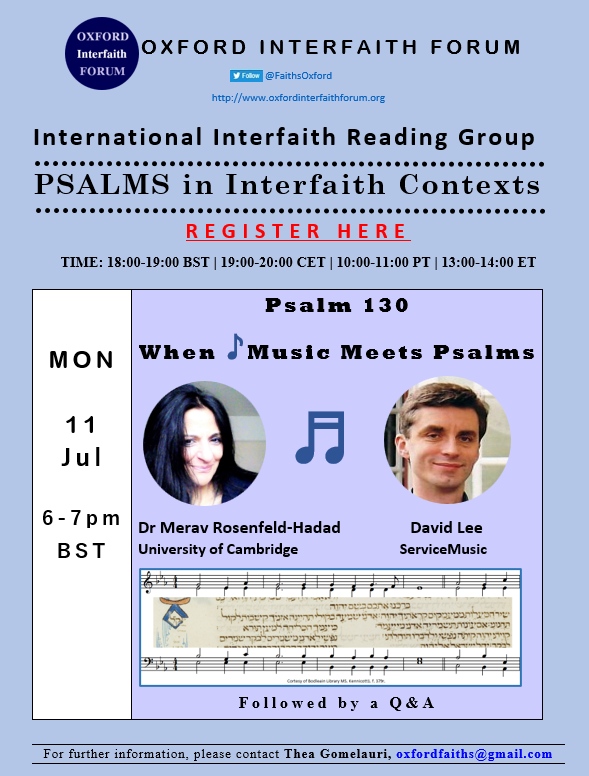
- Psalm 131: How I Weaned Myself from the Breast of God
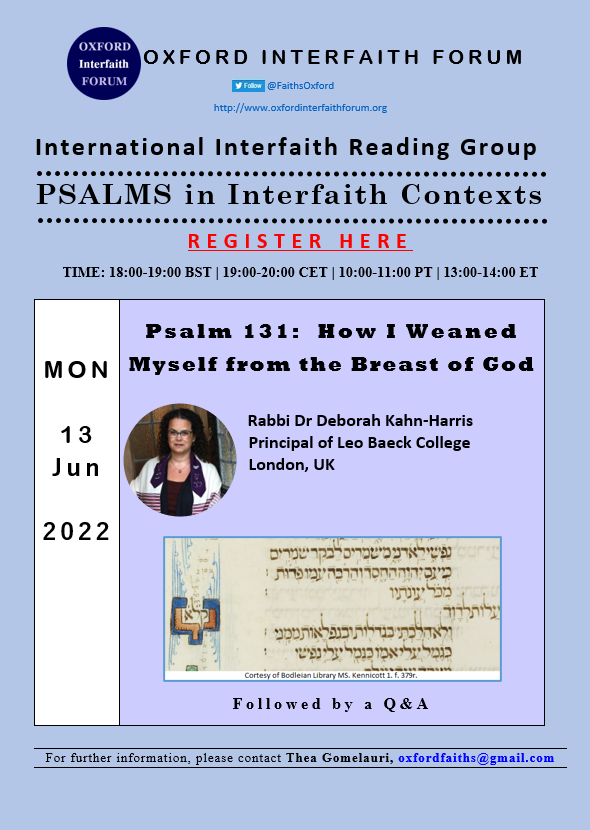
- Psalm 132: A Song of Ascents
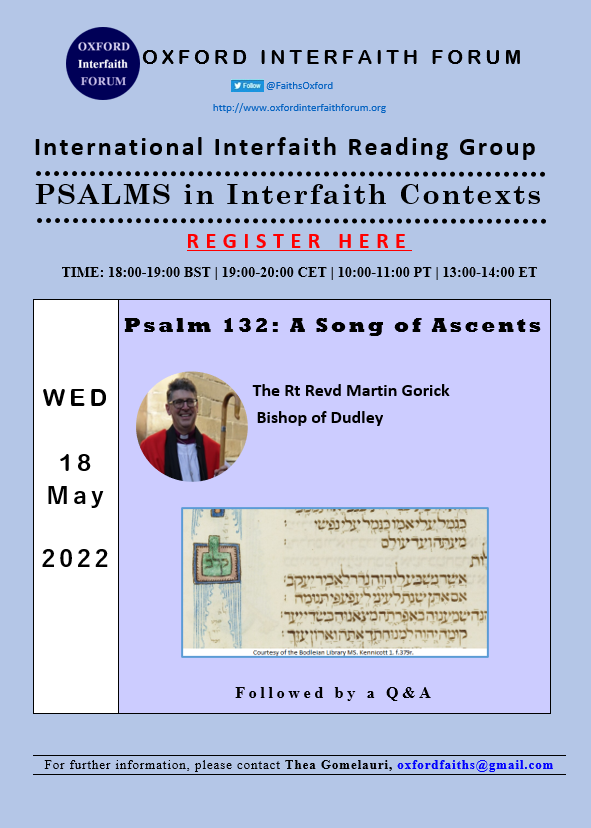
- Psalm 88: ‘Fists Flailing at the Gates of Heaven’
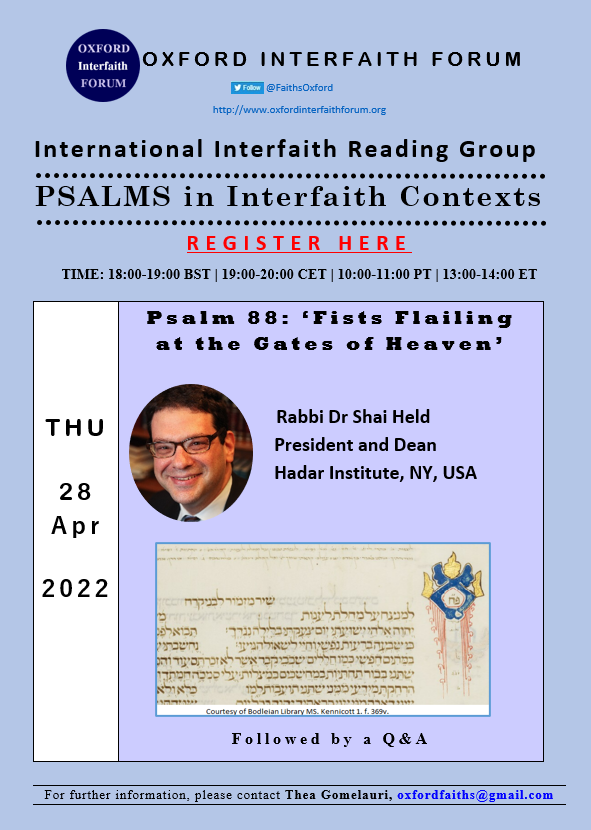
- Psalm 82: Demanding Justice
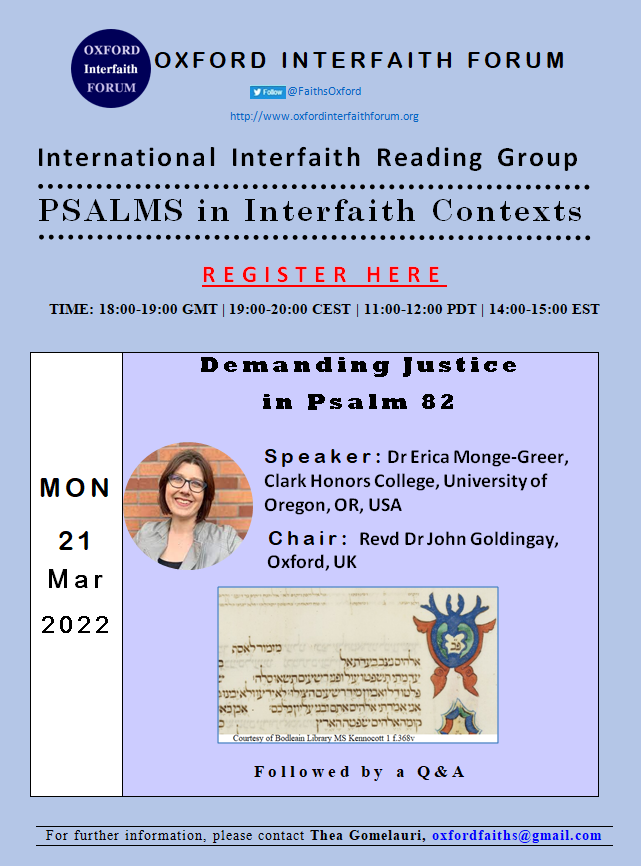
- Psalm 51: Contemporary Multifaith Interpretations
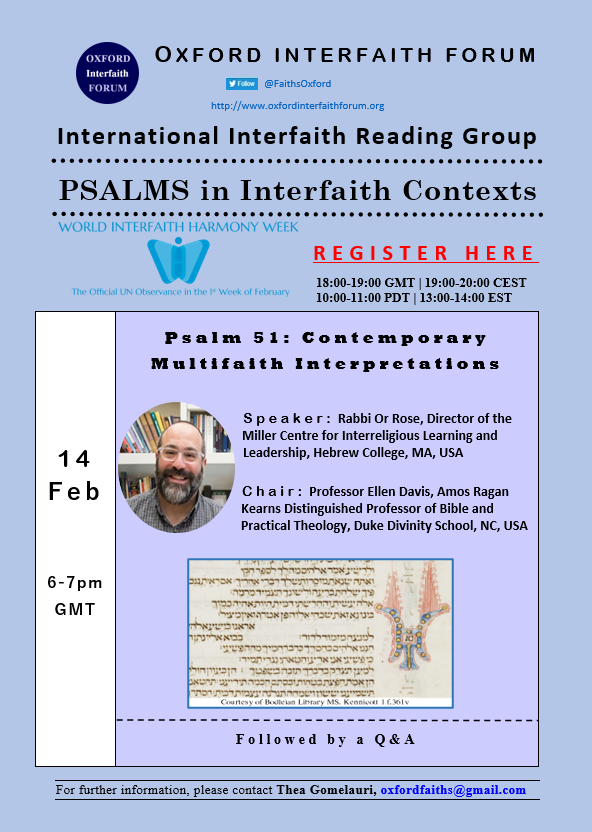
- Comparative Reading of Psalms and Abrahams’ Prayers in the Quran
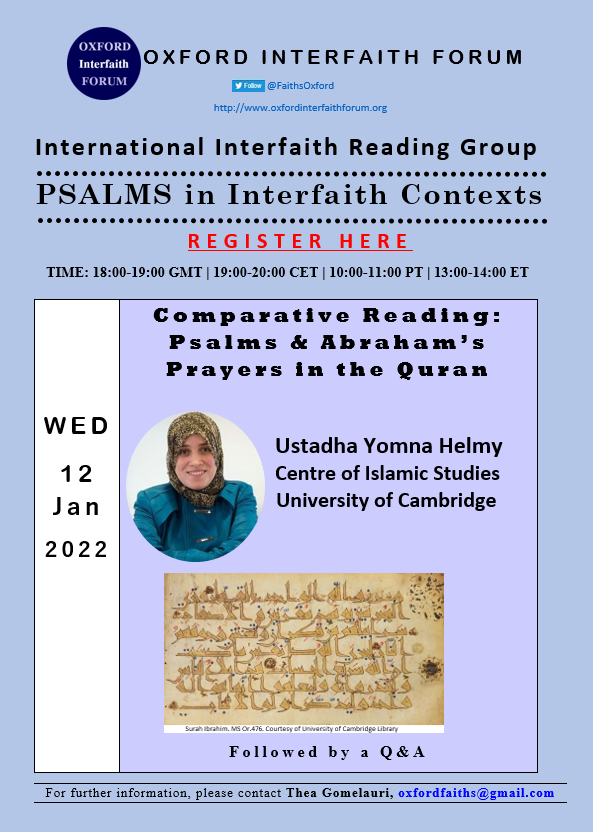
- Psalm 33: Mystical Reading
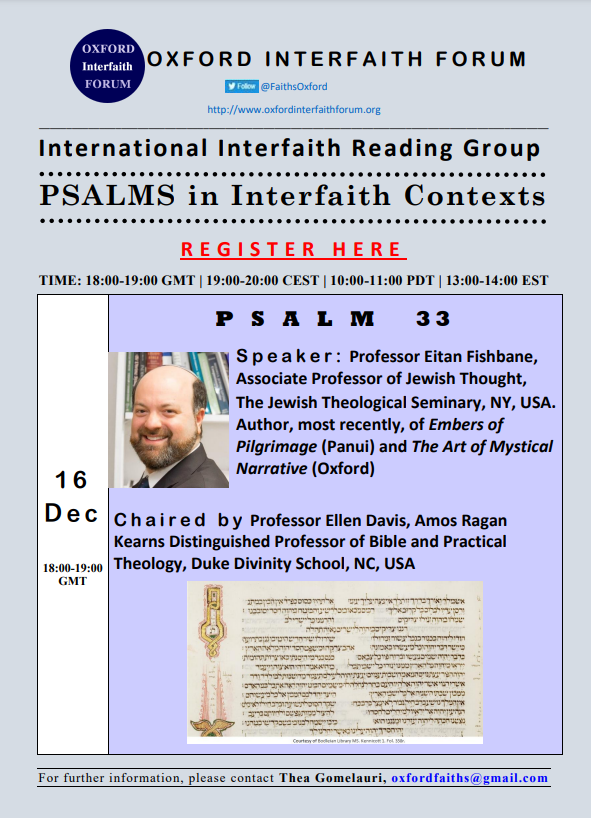
- Psalm 139
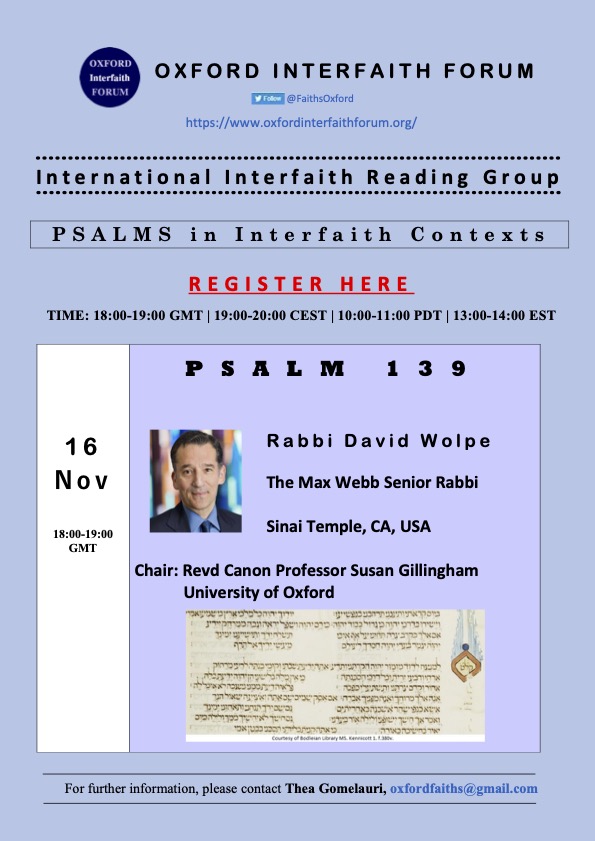
- Psalm 1: Inaugural Session by Revd Dr John Goldingay
